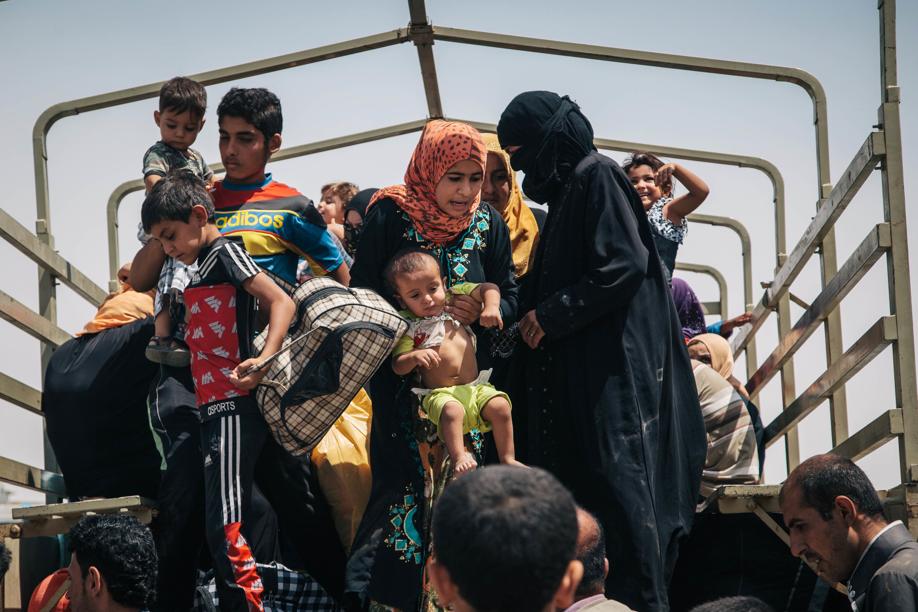
NEW YORK — The United Nations refugee agency said Tuesday that it is bracing to accommodate as many as 1.2 million displaced Iraqis when the battle begins to retake Mosul from Islamic State militants, who overran the northern city more than two years ago.
A spokesman for the agency, Adrian Edwards, said it was scrambling to build encampments in six locations in northern Iraq to handle such an influx, which could inflate the country’s displaced-person population by more than a third. Edwards also said that “other shelter options are being prepared.’’
His announcement, at a news briefing in Geneva, the refugee agency’s headquarters, did not necessarily signify that a military operation to seize Mosul is any closer. The Iraqi government has been warning of such a battle for months.
But the announcement provided detail on the efforts to prepare for enormous new pressure on the Iraqi government to house and feed hundreds of thousands of Mosul residents when the fighting starts.
“The humanitarian impact of a military offensive there is expected to be enormous,’’ Edwards said in remarks posted on the refugee agency’s website.
Iraqi forces said Tuesday that they surrounded an oil refinery after launching a push to retake the Islamic State-held town of Qayara, south of Mosul, the Associated Press reported.
Special forces spokesman Sabah al-Numan said troops were still fighting a small group of ISIS militants inside the complex.
Iraqi forces are conducting a series of small-scale operations around Mosul ahead of an eventual push to retake the city. Prime Minister Haider al-Abadi has pledged to drive ISIS out of Mosul this year.
Last month Iraqi forces backed by US-led airstrikes retook the Qayara airfield, a transport hub that could prove crucial for an advance on Mosul.
As the Islamic State loses ground in Iraq, the militants are showing strains in their rule over areas they still control, growing more brutal, killing deserters, and relying on younger and younger recruits, according to residents who fled battleground territories, the AP reported.
Iraq already is confronted with one of the biggest internal displacement crises in the Middle East. Nearly 3.4 million people have fled their homes since January 2014, including families who have been uprooted multiple times.
A battle for Mosul could increase that number by up to 1.2 million people, Edwards said. He coupled the warning with a plea for donations, saying the refugee agency’s Iraq budget of $584 million was only 38 percent funded as of Aug. 2.
The UN “is doing what it can amid enormous challenges to build more camps to accommodate people and mitigate suffering, but additional land for camps and funding is still needed,’’ he said.
Mosul, once Iraq’s second-largest city with a population that reached roughly 2.5 million, was seized in June 2014 by Islamic State militants who routed government troops, many of whom fled in panic.
The Mosul takeover was a humiliation for the Iraqi government and a warning for the United States and other Western powers about the potency of the Islamic State, which went on to capture more territory in Iraq.
President Obama, who had withdrawn US troops from Iraq in 2011, redeployed a limited number and authorized US airstrikes against Islamic State targets.
With the help of US airstrikes and assistance from other powers, including Iran, a conglomeration of Iraqi government forces and militias have since reclaimed the cities of Ramadi and Fallujah from the Islamic State, leaving Mosul as the militant group’s last major redoubt in the country.
Nonetheless, US military officials have warned of what they describe as a grinding insurgency to oust the Islamic State from Mosul and destroy the group’s ability to carry out suicide bombings and other deadly attacks.



